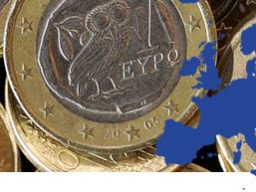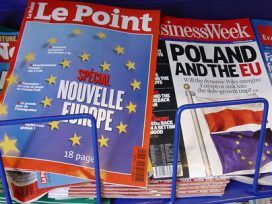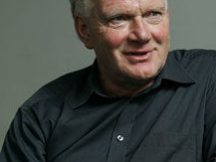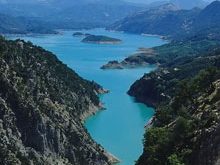86 articles

When the global financial crisis broke at the end of 2008, Europe’s leaders complacently maintained that the problem was an Anglo-Saxon one. Now, with trillions potentially having to be poured into national economies too big to fail – Greece, Ireland, Portugal, even Italy and Spain – the eurocrisis is threatening to overshadow the original banking collapse of 2008.
Brought on by the global economic recession, the eurocrisis has been exacerbated by serious faults built into the institutional structure of the monetary union. The non-existence of centralized political control over the European economy combined with lack of democratic legitimacy sets in motion processes that are undermining European solidarity.
In a new Eurozine focal point, published in cooperation with the Allianz Kulturstiftung, contributors discuss whether the EU is not only broke, but also broken – and if so, whether Europe’s leaders are up to the task of fixing it.

This Focal Point represents a cooperation between Eurozine and the Allianz Kulturstiftung.

Central European responses to the euro crisis have been marked by a total absence of regional solidarity, writes Jacques Rupnik. Differing national situations explain varying perceptions of the crisis’ risks and remedies and can be seen in terms of political lessons learned.
Ireland, like other small EU member-states, must be especially smart in responding to the euro crisis, since it does not command the resources that better enable larger states to protect their interests. How coherent has the Irish approach been so far and are the alternatives more convincing?

The euro will be brought down by a European Tea Party-type movement of well-off northerners unwilling to pay for indebted countries, predicts Björn Elmbrant. But the EU has a role to play beyond the euro. Instead of a neoliberal politics of austerity we need a Marshall plan for Greece, Ireland and Portugal.

While discrepancies between EU member states can be overlooked during win-win periods of growth, recession triggers xenophobic and anti-European reactions in both rich and poor countries. In interview with Nikola Tietze and Ulrich Bielefeld for Mittelweg 36, Ulrich Beck explains how inequality leaves the Union susceptible to decay. Building on the sense of a common European destiny engendered by the crisis, how can Europe be communicated as an opportunity for more power rather than a threat to national sovereignty?

Misdirected EU aid has strengthened rent-seeking elements in the Greek economy and fostered political clientelism, writes Iannis Carras. Instead of learning from mistakes, current EU/IMF policy favours construction and privatization of state land, enabled through a legal sleight of hand. Quite apart from the environmental risks, this is counterproductive in economic terms.

Historically positioning themselves between an unruly, oriental population and the western powers, since 1981 Greek elites have siphoned off EU funds into a bloated public sector favouring corruption, patronage and social climbing. The threat posed to Europe by the breakdown is less contagion to the centre than a wave of anti-western feeling that could exacerbate geopolitical instabilities in the region.
Too many Europeans have too long avoided the question of Europe, says Swedish writer Per Wirtén. To prevent the EU from turning into a “post-democratic regime of bureaucrats”, intellectuals need to stop mumbling and take the fear of Europe seriously.
French-German leadership during the euro crisis has been fraught with tension. It’s not so much the case that Germany is abandoning its European responsibilities, more that the crisis emphasizes differences in political culture. While Germany may seem dilatory, French resolve forfeits democratic deliberation.
It is not capitalism that has come to an end but a mode of politics that seeks to guarantee market stability, argues economic historian Werner Plumpe. The crisis must be allowed to serve its cyclical function, the state limiting itself to compensating for the social consequences of structural economic transformation.
The thirty-year long experiment in market capitalism has failed to unleash a new era of enterprise, entrepreneurialism and dynamism, argues Stewart Lansley. Examining key areas in which the market model was supposed to deliver, he finds that, on almost every count, post-war “managed capitalism” outperformed it successor.
Is the monetary union worth preserving if it means the virtual colonization of the weakest member economies? Assessing responses to the euro crisis, John Grahl argues that the real cause – private sector deficits across the periphery – remains unaddressed. Instead, a regime is emerging in which EU creditor authorities override national decision-making in every aspect of public policy.
European leaders’ unwavering commitment to ever closer union is causing more harm than good, argues Stefan Auer. Europe doesn’t need more integration; it needs more democracy to enable its nations to regain control over their destiny. Partial and well-managed disintegration may be preferable to a chaotic implosion.
While democracy evaporates on a national level, it doesn’t reappear anywhere else, least of all in Europe. Maintaining the democratic nature of our societies depends on the rules of the game we impose on ourselves at the European level, argues José Ignacio Torreblanca.
Germany’s politicians lack deep European convictions yet are susceptible to calls for a more strident role in Europe; and while the mainstream is unlikely to give up what it sees as the recipe for German success, “constitutional patriotism” could allow for greater Europeanization. Jan-Werner Müller talks to Esprit about German contradictions.
Democratic upsurge in North Africa can combine with the renewable energy revolution to inject new life into the European project. Two-way developmental traffic across the Mediterranean would leave new generations in both North and South with fair chances of a good life, Claus Leggewie suggests.



